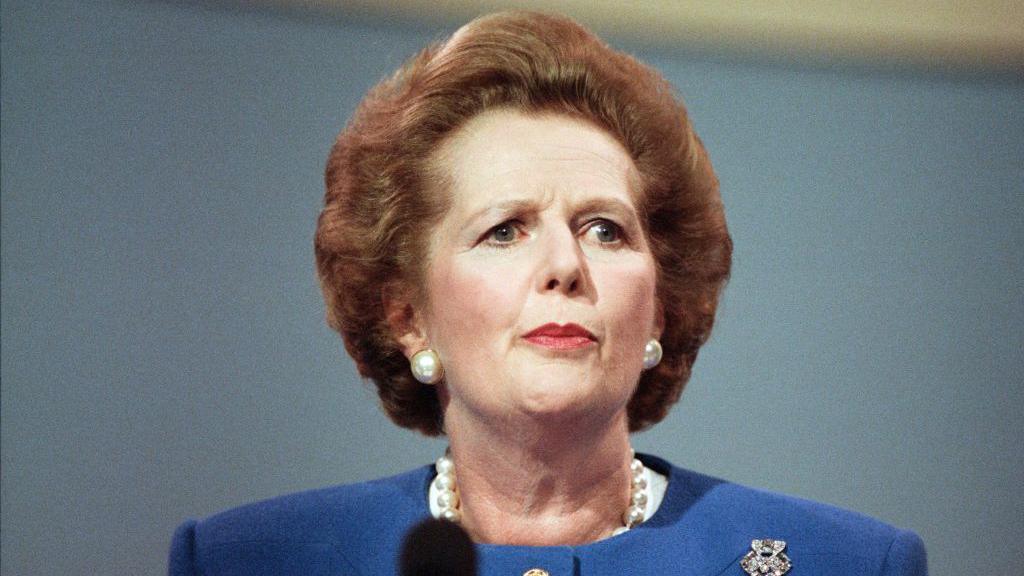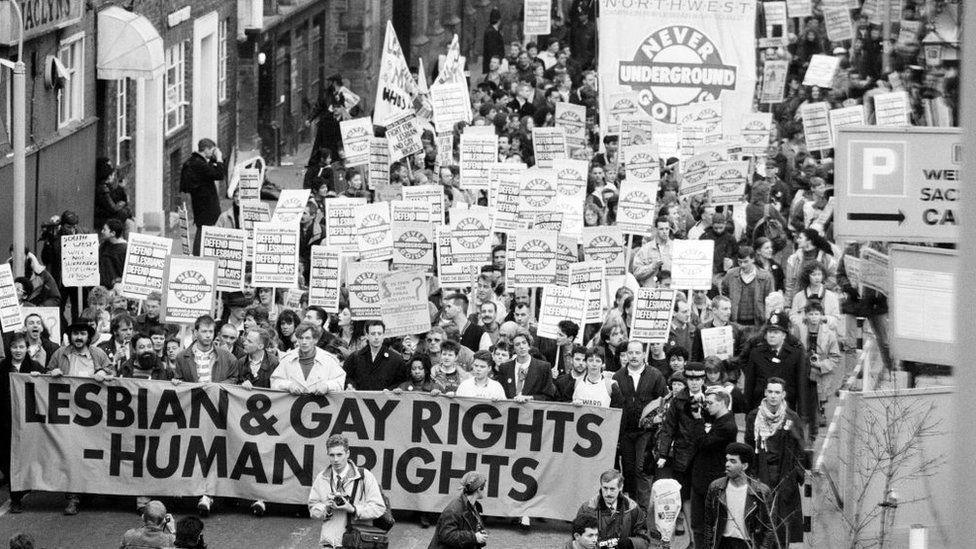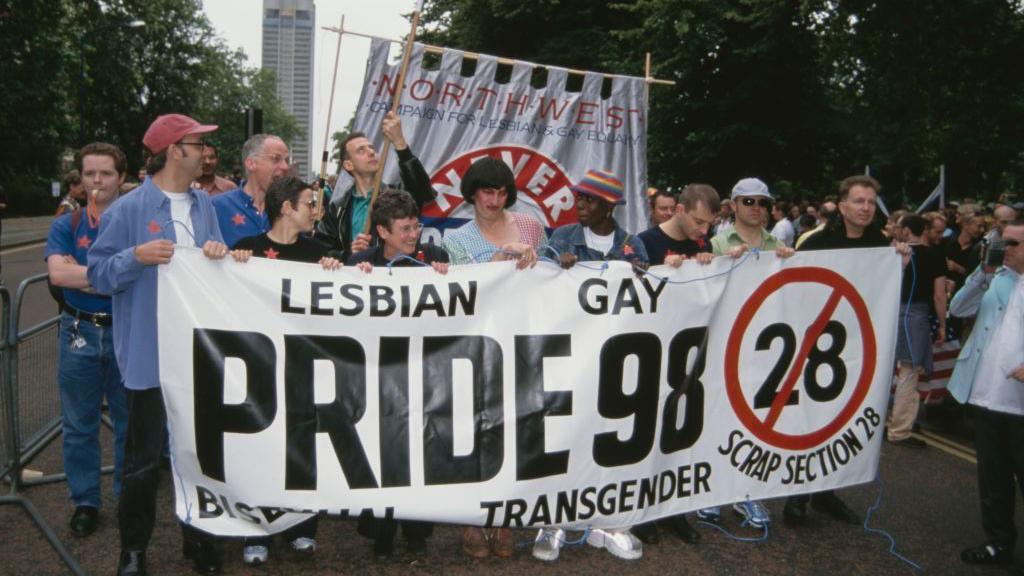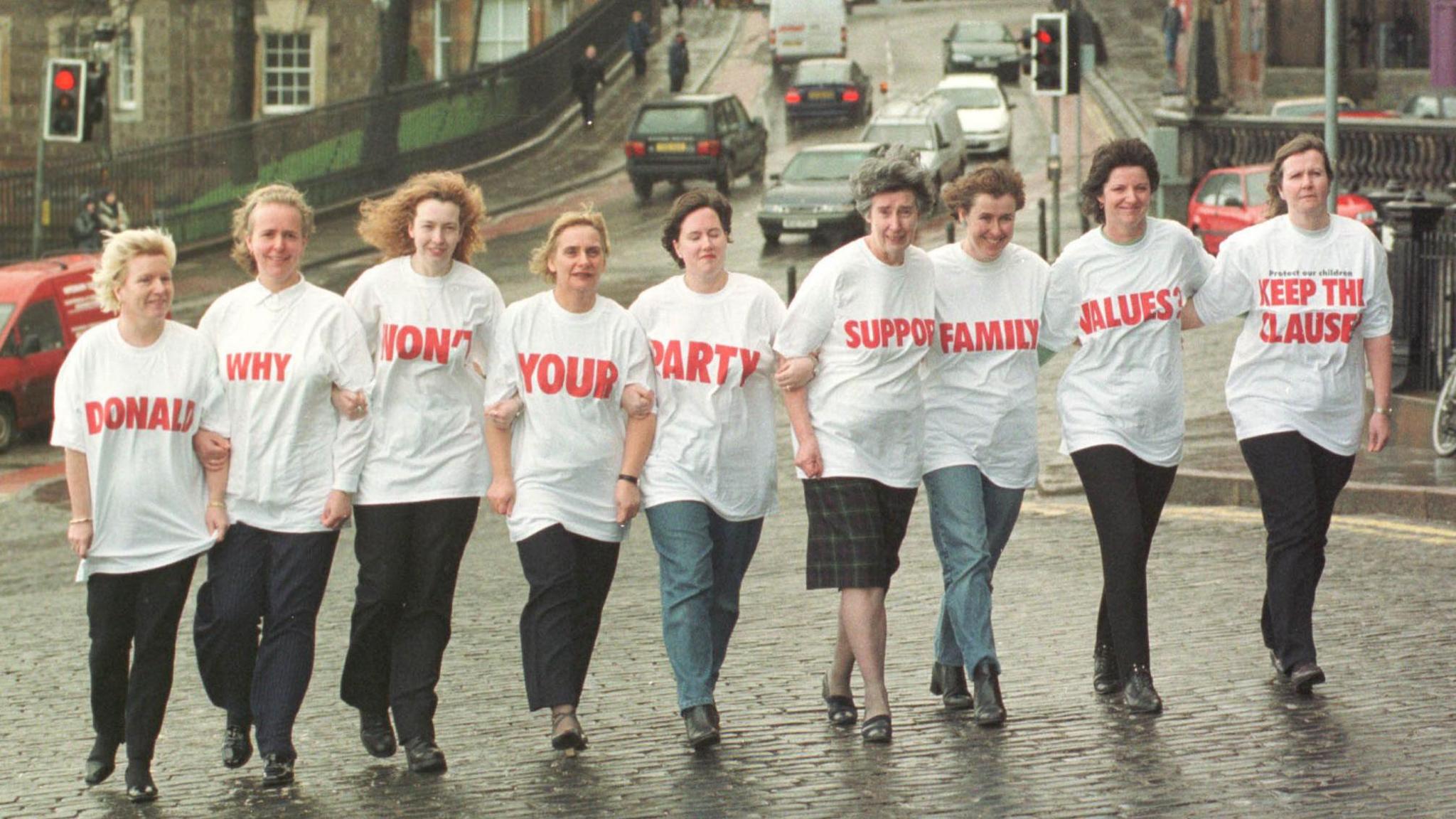'A visitor said how much fear was in the room'

Tony Challis moved to Nottingham at the same time Section 28 of the Local Government Act came into force
- Published
A gay man has recalled the impact of one of the most controversial laws of the 1980s.
Tony Challis, a former English and drama teacher, came to Nottingham from Bristol in 1988 - at the same time Section 28 of the Local Government Act came into force.
The legislation, which was later repealed in Scotland in 2000, and England and Wales in 2003, said local authorities in England, Scotland and Wales "shall not intentionally promote homosexuality or publish material with the intention of promoting homosexuality".
Mr Challis said he was "horrified" at the time, but added the law actually galvanised many in the gay rights movement.

Former prime minister Margaret Thatcher backed Section 28 at the 1988 Conservative Party Conference
Mr Challis was speaking to mark the 50th anniversary of the Notts LGBT+ Network, external.
He said: "I started teaching in the late 60s, and people didn't talk about [homosexuality] at all - it was only in '67 the law was changed to make it legal.
"When I was at a college of education, there were a couple of guys who came out and I felt - people generally felt - they were very brave."
As time moved on, Mr Challis said there was "gradually" more tolerance and he attended his first major march in 1972 and began to build networks.
He said: "There were several of us, when I was working down in Bristol, who decided we did want to set up some sort of support group.
"Teachers would come from as far afield as Cardiff and Plymouth.
"One person brought along a colleague, a woman, who did comment how much fear there still was in the room."

Mr Challis said the legislation "galvanised" the gay community
A few years later, in the 1980s, gay men started to be affected by a mysterious disease.
The first UK death from Aids was in London in 1981 - although it was only later this was confirmed to be down to an HIV-related illness.
As time passed and panic grew, gay people were ushered further into the shadows by a homophobic press campaign.
Terms like the "gay plague" were widely used, and people believed HIV could be transmitted by any kind of proximity to those with the virus.
"During the early '80s, HIV Aids became a big problem, which created its own fear," said Mr Challis. "I think campaigning as such dropped off.
"But when Section 28 came in I was horrified, but it really galvanised everything. It led to a wonderful big march in Manchester.
"People were careful about what they said and lots of people, men and women, gay and straight, all joined in.
"It encouraged lots of people who opposed it to become active."

Section 28 was met with large protests by LGBT+ groups
Mr Challis said his school discussed the changes "positively".
"It was never successfully prosecuted, but it did mean people were very careful about what they said," he said.
"But some people managed to keep talking, but it did put a dampener on what could be spoken between teachers and pupils."
Section 28 was eventually repealed in England and Wales in 2003.
Get in touch
Tell us which stories we should cover in Nottingham
Follow BBC Nottingham on Facebook, external, on X, external, or on Instagram, external. Send your story ideas to eastmidsnews@bbc.co.uk, external or via WhatsApp, external on 0808 100 2210.
Related topics
- Published22 June

- Published13 May

- Published30 March

- Published17 November 2023

